12/21/2014 - Traditions Must Continue!
We very often do a "Battle Sail" right after the first of the year but this year the Tall Ships were due into port on the 21st as we took advantage!. We joined the Finch's, McGinty's, Schneider's, and Thedens in attacking anything in the Long Beach Harbor (except the Iowa). All the pictures will soon be on our 2014 Tall Ship Site.
The Day Begins With A Champagne Toast To Kerstin... A New US Citizen
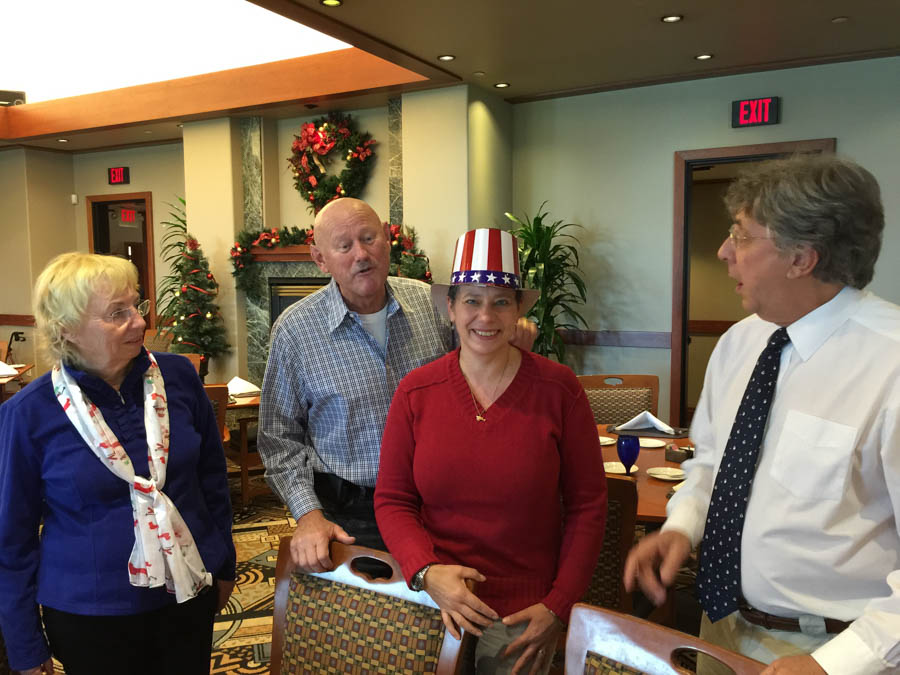
Love the hat
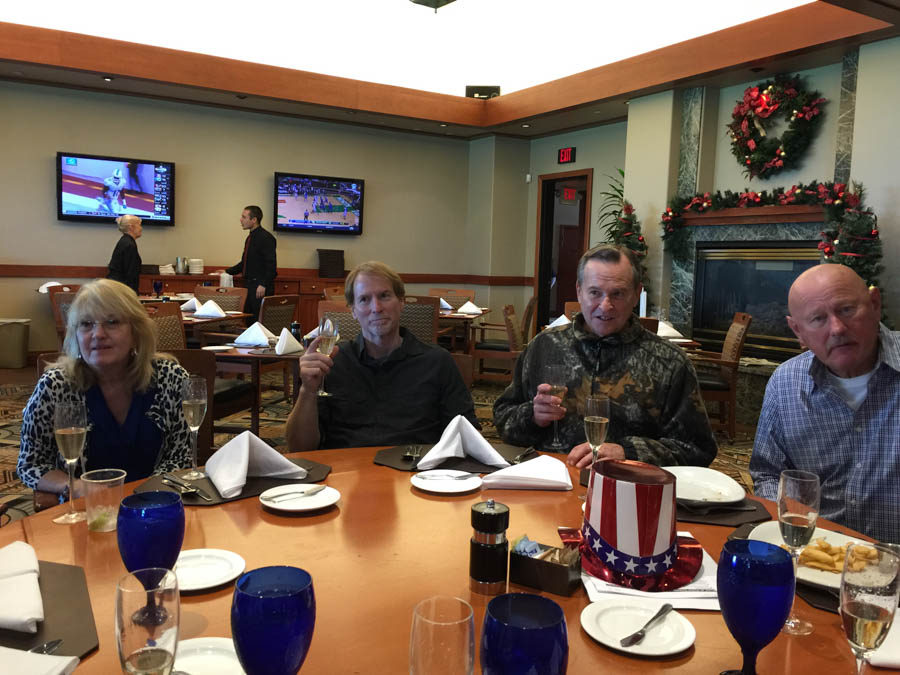
The McGinty's and Schneider's join the celebration

A Short Drive To San Pedro

A place to get a quick drink before boarding the ship
Did You Know? - the "Ports O' Call" tourist destination built in 1963 which provides shopping venues, waterfront eateries and Crafted at the Port of Los Angeles, a permanent craft marketplace housed inside the historic World War II Naval Warehouse #10.

Champagne, Beer, and Wine flowed freely
Geri is dreaming of a White Christmas
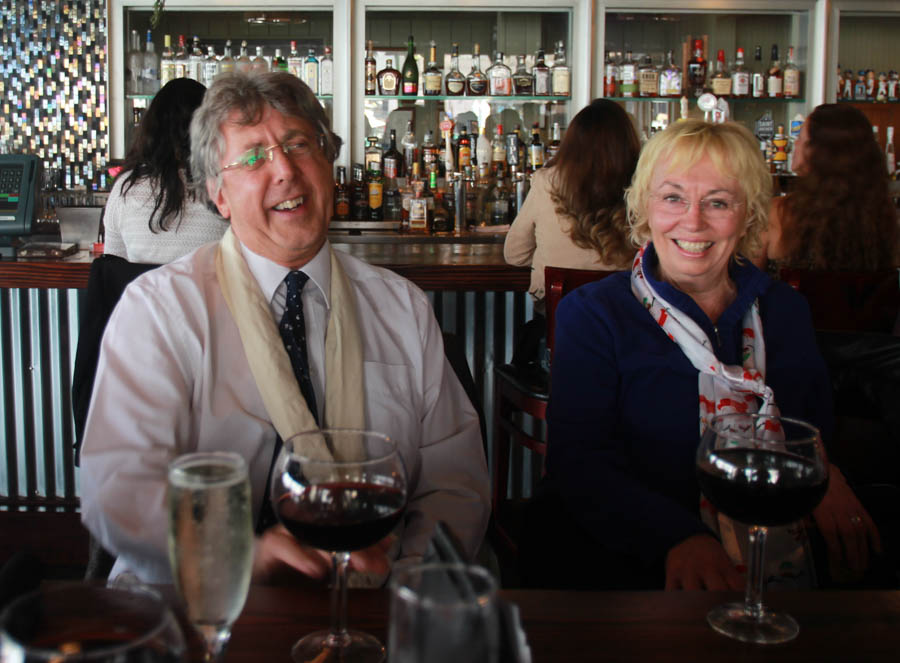
Brian is getting warmed up


Jeri and Sharon are getting ready to sail

Brian conducts a rousing rendition of "100 Bottles Of Beer On The Wall"
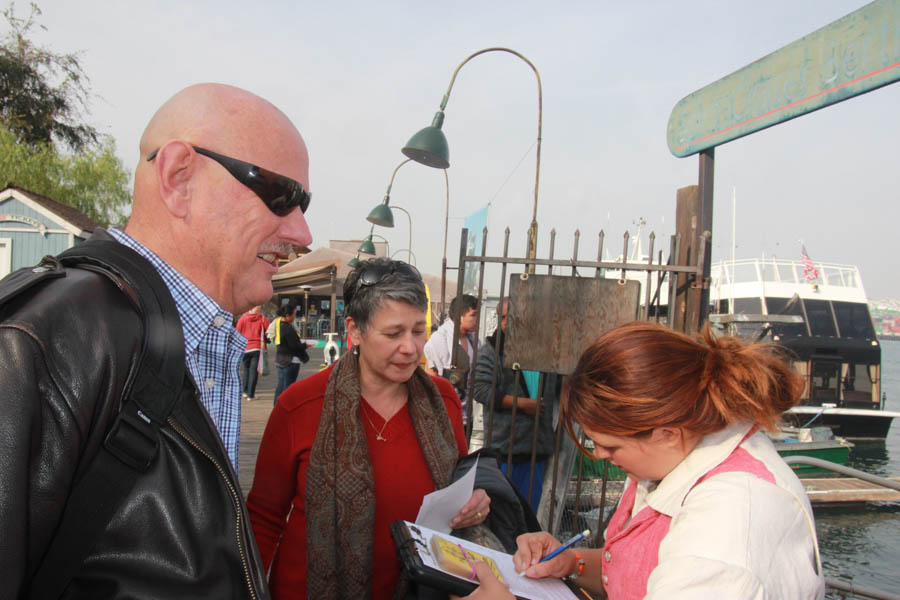
Checking in - Kerstin used magic to get her tickets!
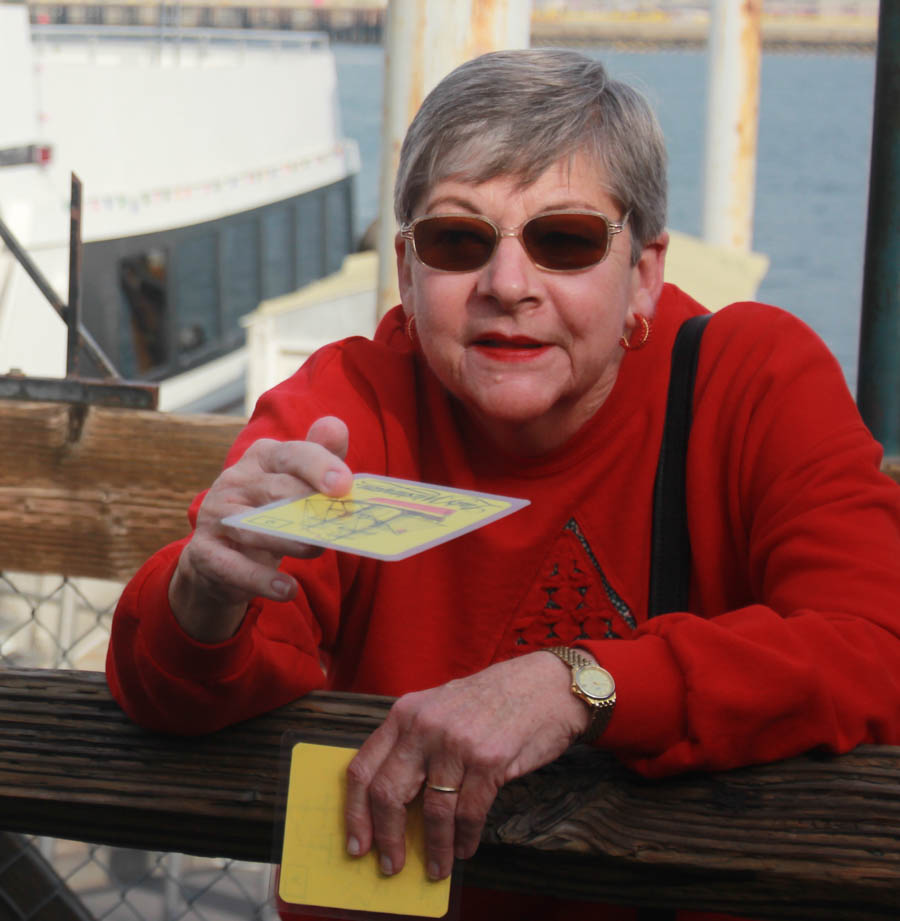
"I want to keep my boarding pass"

Christmas Love Birds
(Courtesy of Hans Thedens)

Regular birds - An old English term
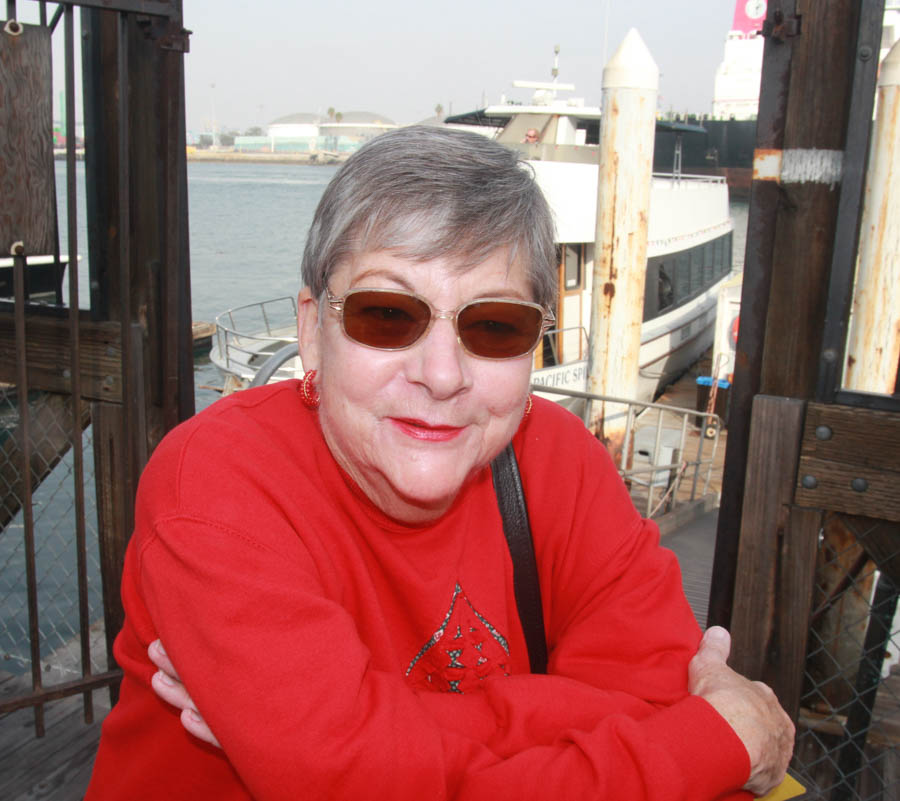
"I am so happy.... We shall be sailing in a few minutes"
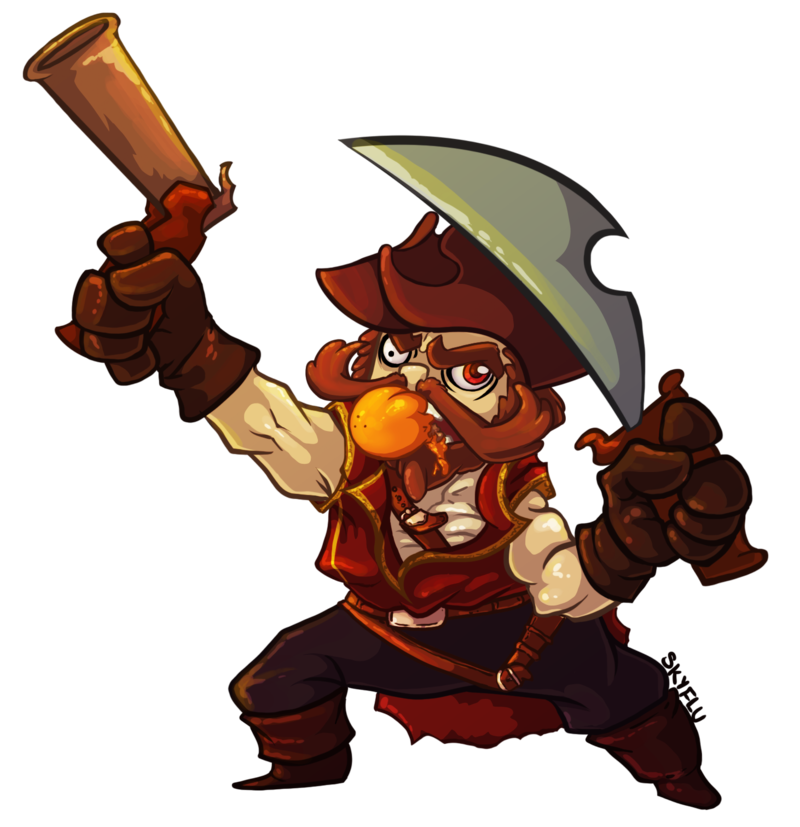
Come on aboard... Don't be afraid!
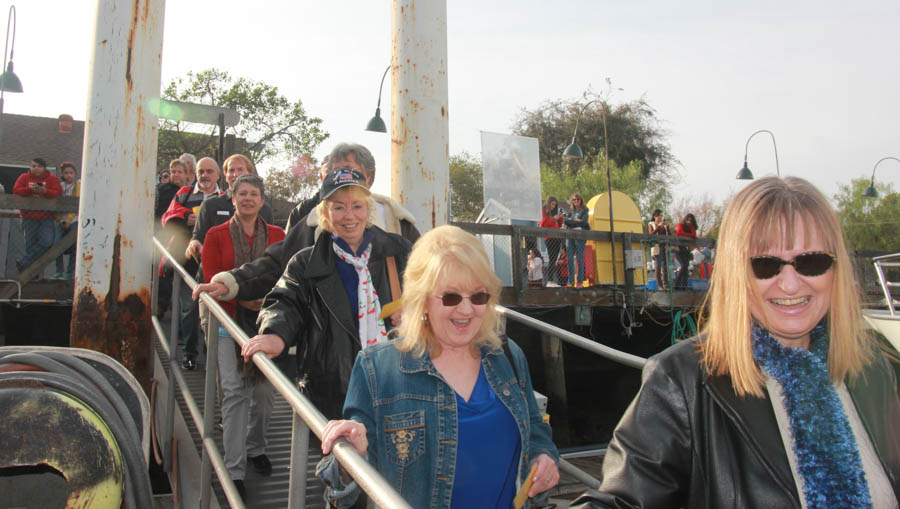
Walking the plank.... Oops, Gangplank
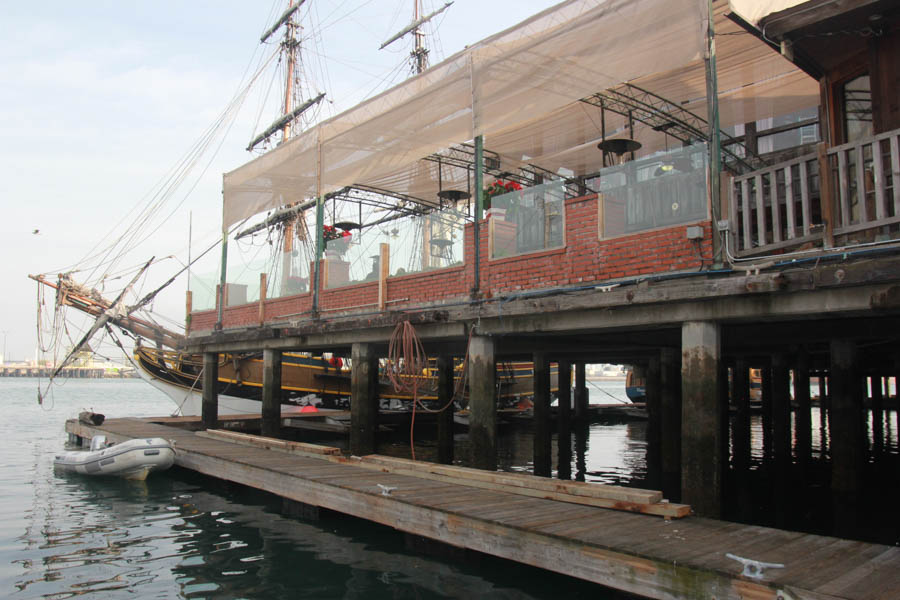
Our ship was right outside the restaurant
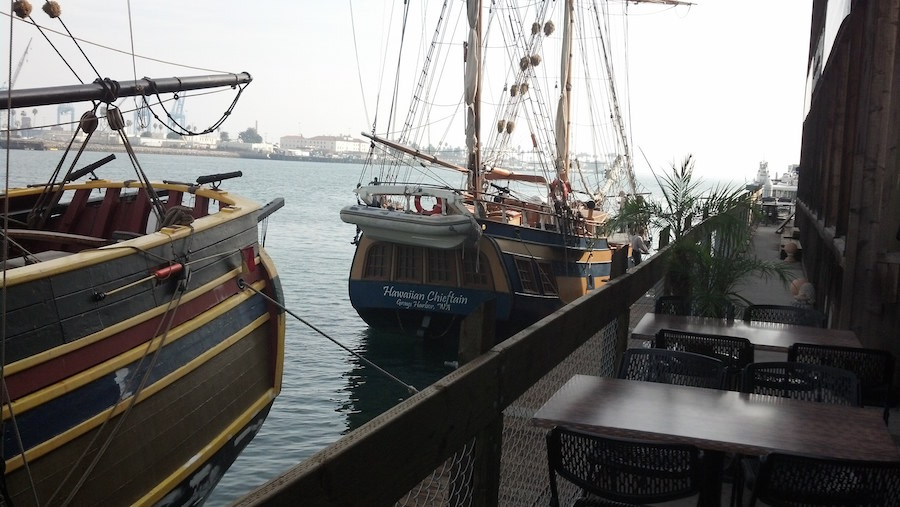
Two ships this fine day (Courtesy of John Schneider)

Captain Finch at the ready

Hans had his trusty camera at the ready

We get the safety updates.... I thought I heard her say something like...
"Make sure you drink a lot as alcohol floats!"
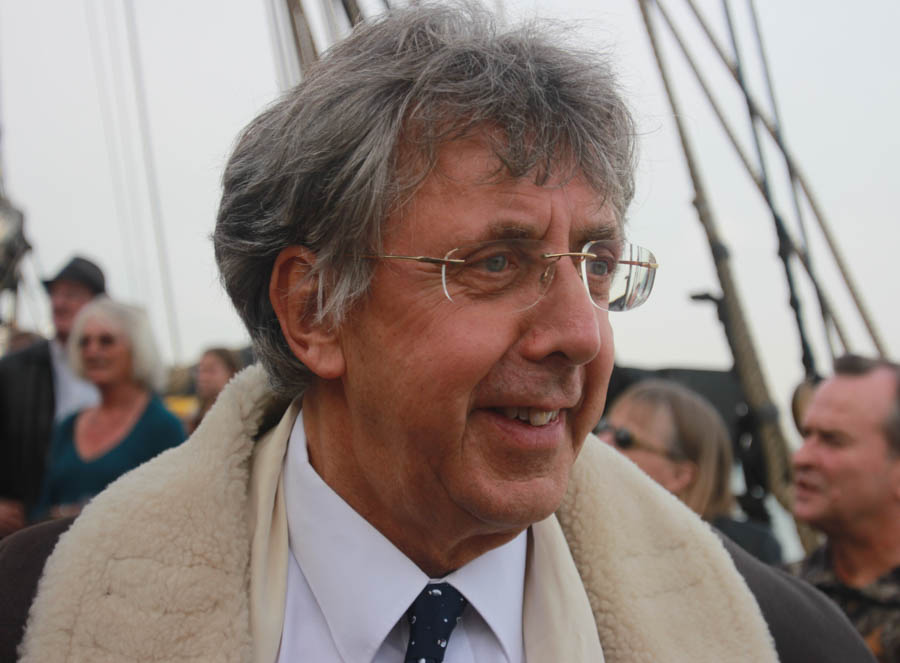
"Did I hear the word alcohol... I need to find Paul and let him know
that we will not sink!"
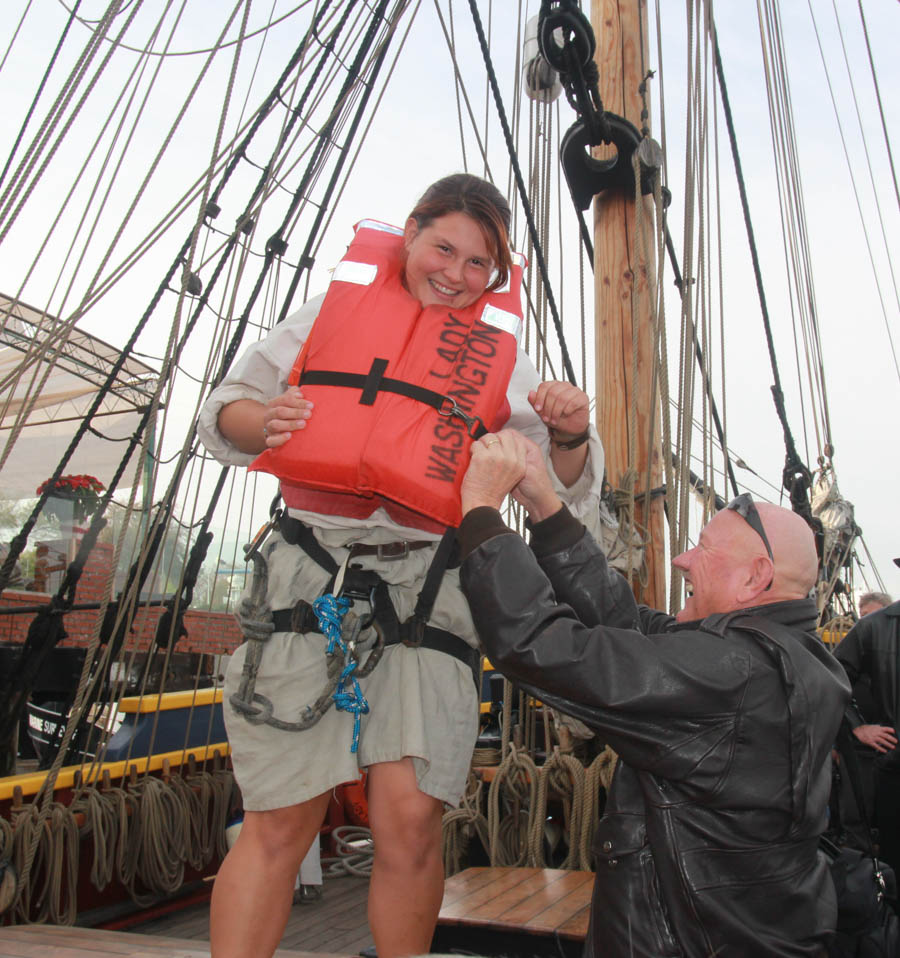
Hans to the rescue.... Hey! Watch your Hans
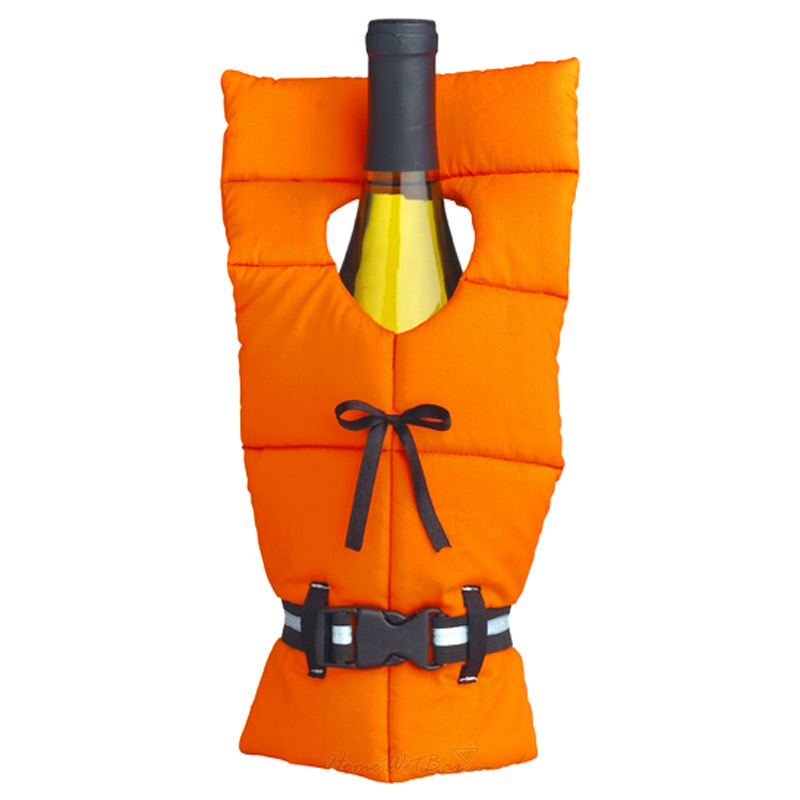
Our group knows how to use a life jacket.... Save the wine!

That there is a Class "A" smile

Another Class "A" smile
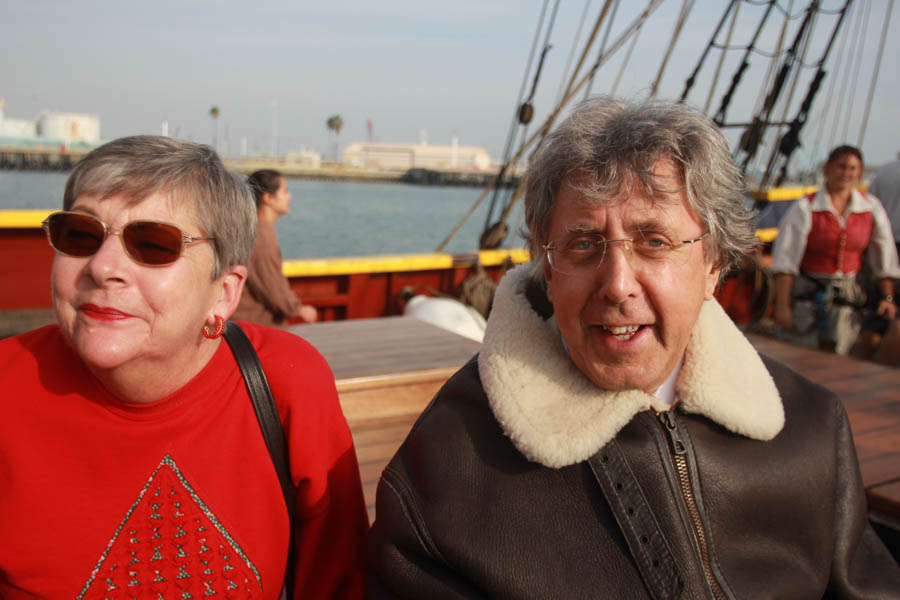
"OK Captain... Take us out!"

John, Jeri, and Curt with Hans capturing the moment

"Hold still!"
(Courtesy of Hans Thedens)

"I am ready... Bring on the cold"

Hans and Paul do some serious refueling (Courtesy of John Schneider)

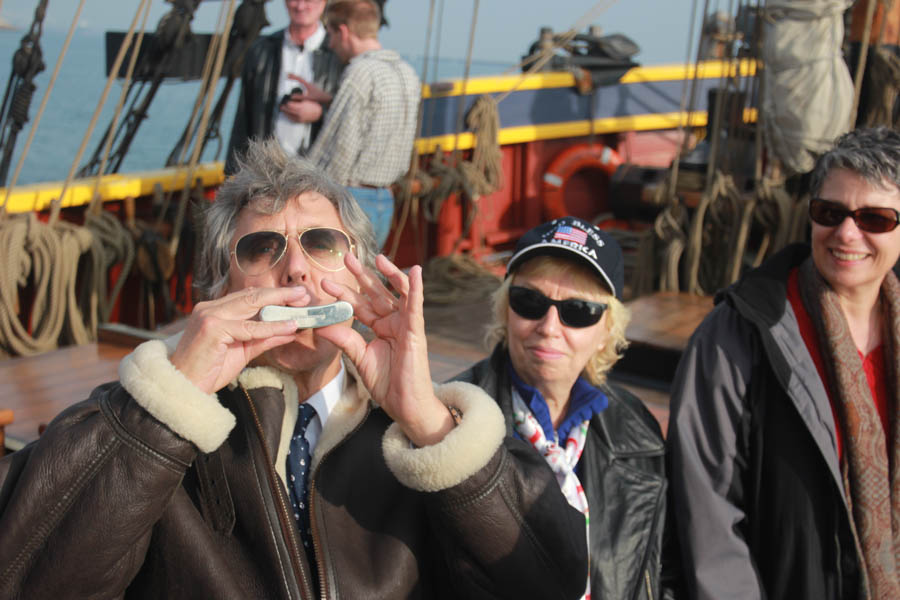
"Just a little bit to warm the cockles of my heart"
Did You Know? - The common English phrase "it warms the cockles of my heart", is used to mean that a feeling of deep-seated contentment has been generated.

"Blimy - This is good"

Trying to figure it out
(Courtesy of Hans Thedens)

We are now departing the breakwater

At night it look much different
The Battle Is About To Begin
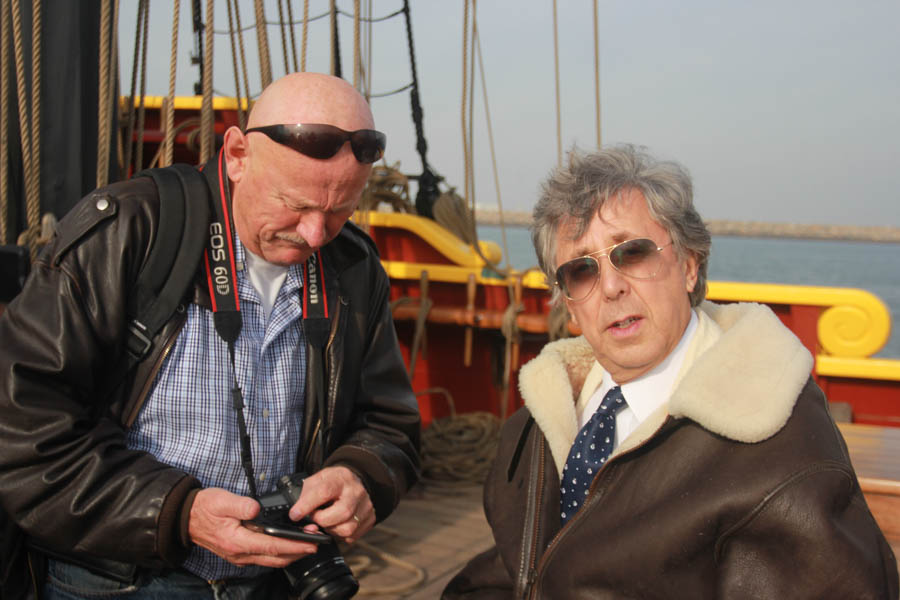
Captain Hans is checking the weather
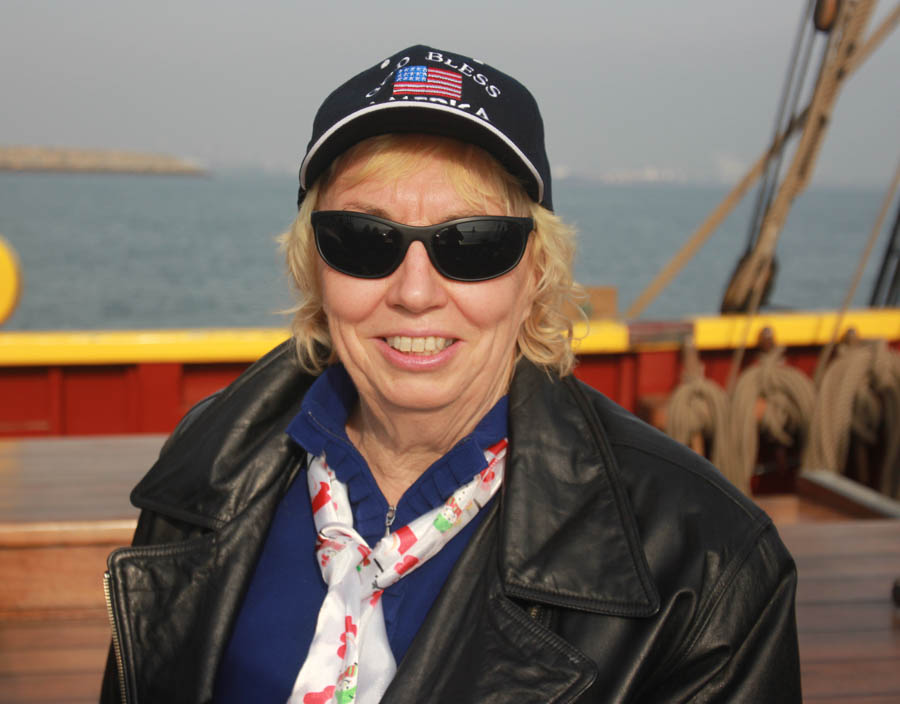
We love Jan's hat.... Indeed... "GOD BLESS AMERICA"

"We are now at sea!"

The smile-o-meter is going off-its-pegs

Out comes the canvas (Courtesy of John Schneider)

Brian finds the loo
Did You Know? - The origin of the (chiefly British) term loo is unknown. According to the OED, the etymology is obscure, but it might derive from the word Waterloo. The first recorded entry is in fact from James Joyce's Ulysses (1922): "O yes, mon loup. How much cost? Waterloo. Watercloset".
Other theories are:
That it derives from the term "gardyloo" (a corruption of the French phrase gardez l'eau! (or maybe garde l'eau!) loosely translated as "watch out for the water!") which was used in medieval times when chamber pots were emptied from a window onto the street. However the first recorded usage of "loo" comes long after this term became obsolete.
That the word comes from nautical terminology, loo being an old-fashioned word for lee. The standard nautical pronunciation (in British English) of leeward is looward. Early ships were not fitted with toilets but the crew would urinate over the side of the vessel. However it was important to use the leeward side. Using the windward side would result in the urine blown back on board: hence the phrases 'pissing into the wind' and 'spitting into the wind'. Even now most yachtsmen refer to the loo rather than the heads.
That the word derives from the 17th century preacher Louis Bourdaloue. Bourdaloue's sermons at the Saint Paul-Saint Louis Church in Paris lasted at least three hours and myth has it that wealthier ladies took along "travelling" chamber pots that could be hidden under their dresses whenever the need arose to avoid the need to leave. Due to the popularity of the myth the bowls became known as Bourdaloues after the preacher and the name became corrupted to portaloos and sometimes just plain loos due to the habit of shortening words in slang.
That the word comes from the French word lieu (place), as in lieu d'aisance (literally: "place of ease", a common euphemism for lavatory) or lieu à l'anglaise (literally: "English place"). From around 1770 the term lieu à l'anglaise began to appear in France, referring to this English invention which was sometimes installed for the benefit of English visitors. (Ashenburg p. 138)

So what is the first thing we do???
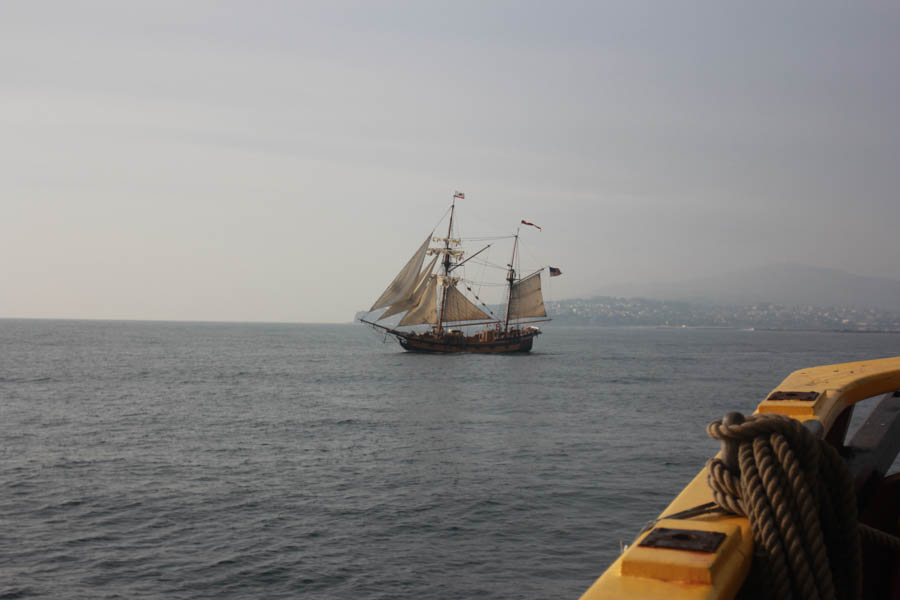
The enemy is spotted.... All hands on board... Begin prayers promptly
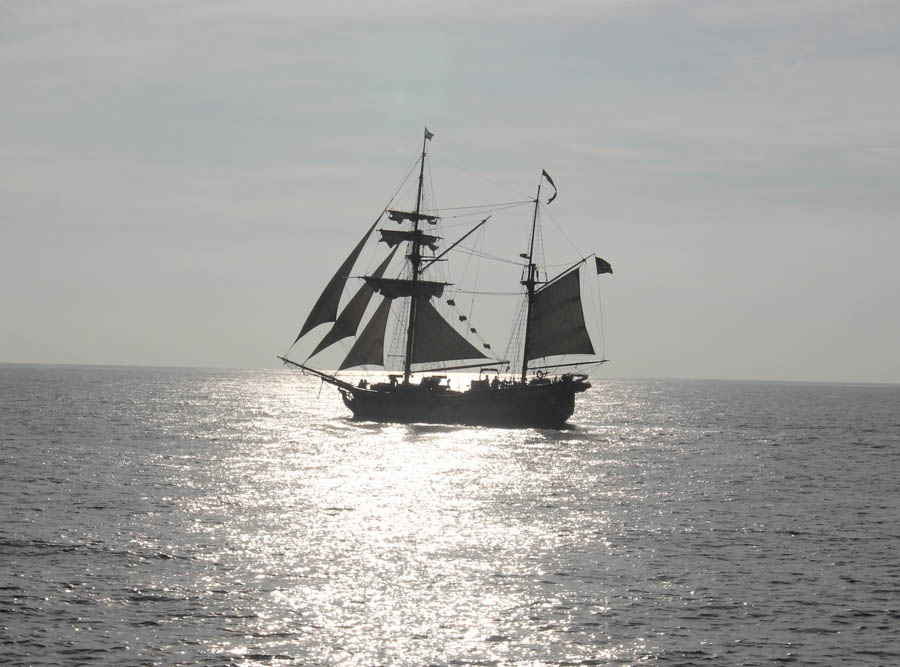
It was a beautiful day
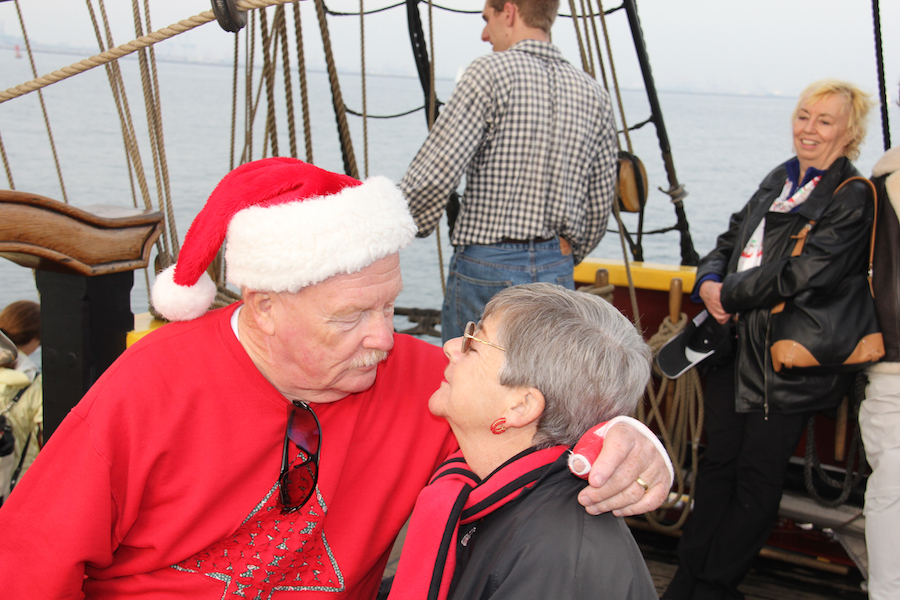
Romance at sea
(Courtesy of Hans Thedens)
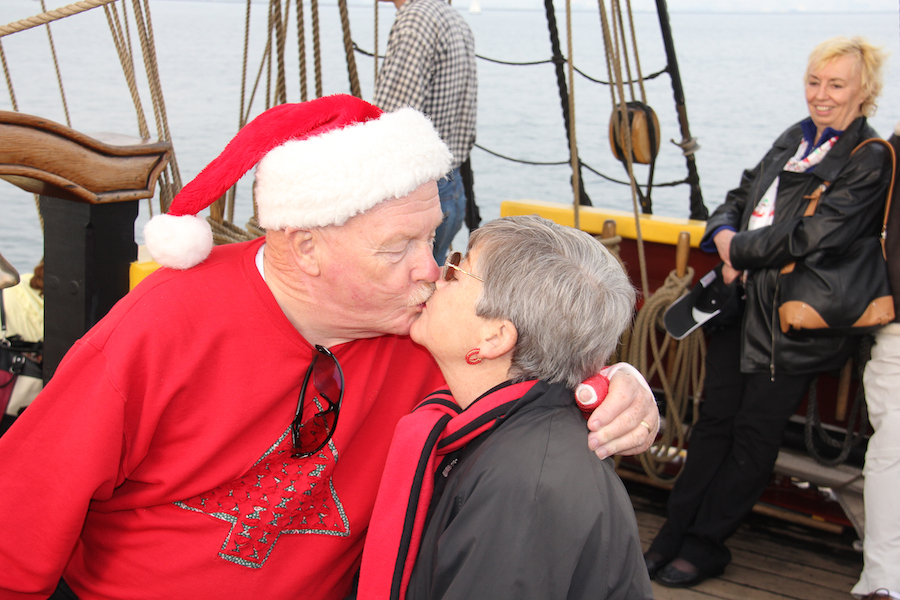
Paul plants a big one
(Courtesy of Hans Thedens)
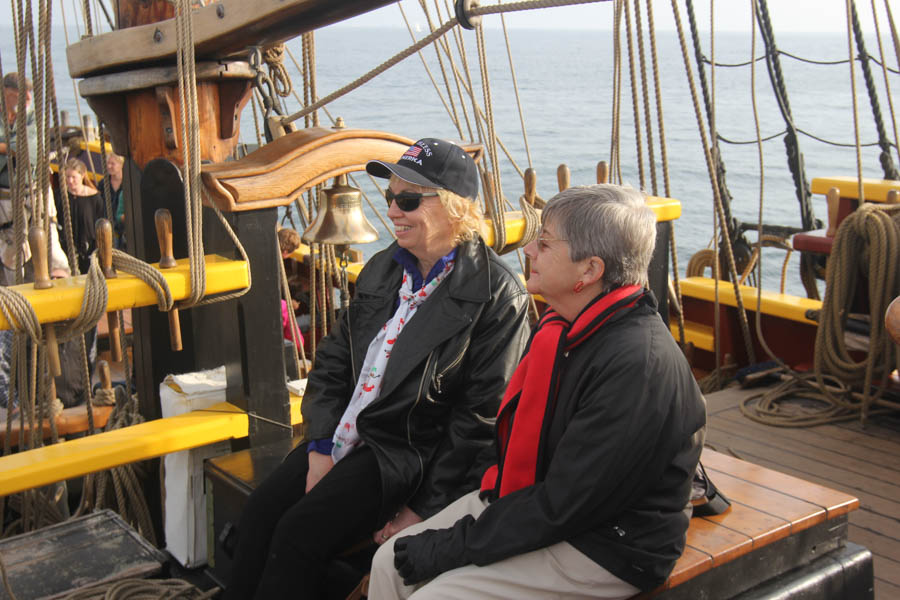
The ladies have the best seat in the house

Great fun!
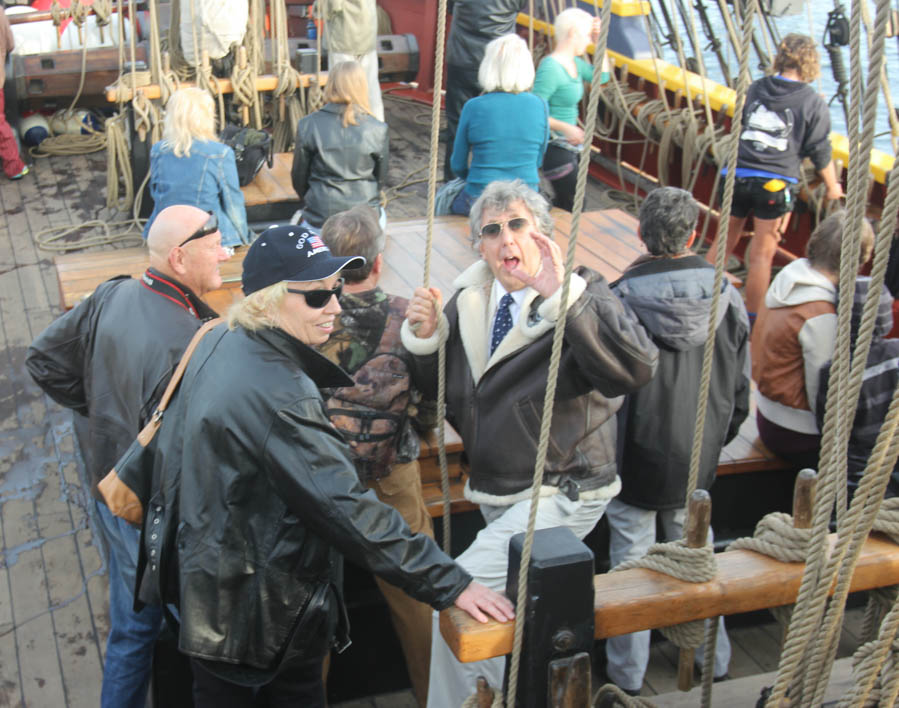
Someone took the flask out of Brain's hands mid swallow
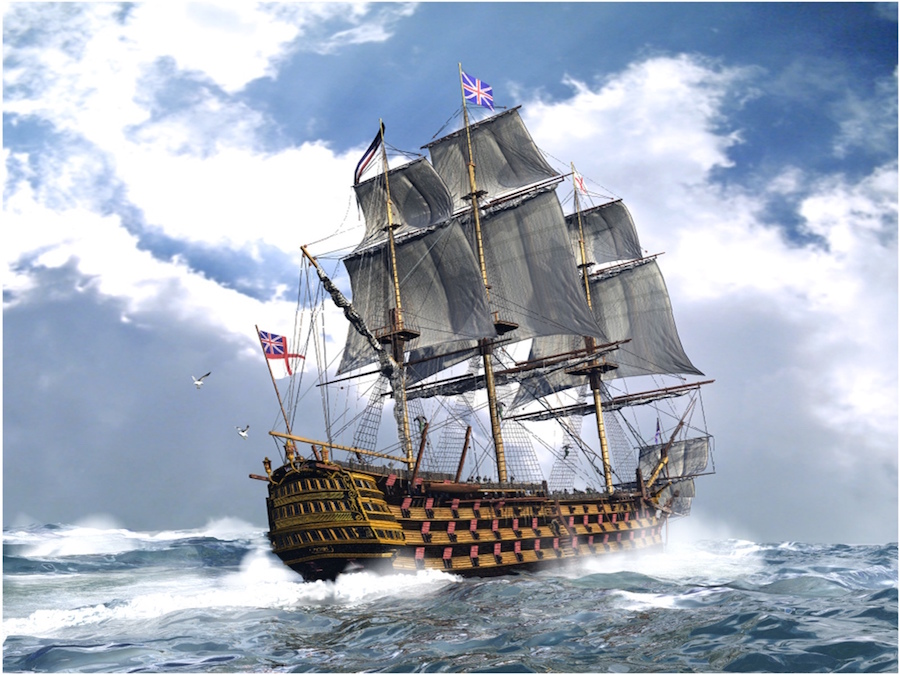
Oh dear... Me thinks we are out-gunned!

The Hawaiian Chieftain is creeping up on us
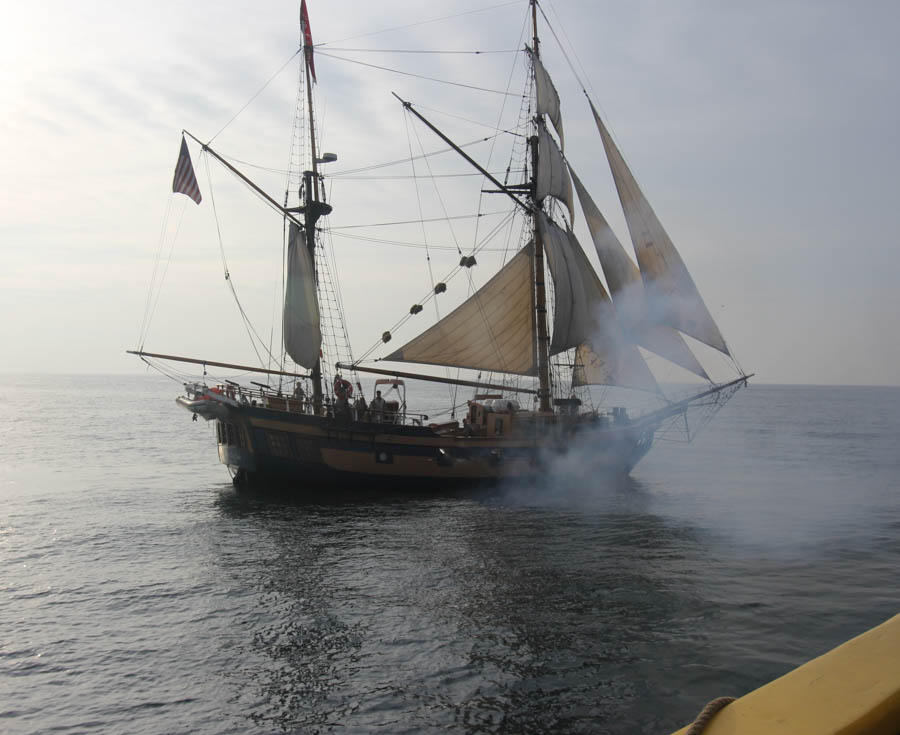
Bam... We are hit... Batten down the ??? Oh, batten something?
Did You Know? -"Batten down the natches" From the practice aboard a ship of sealing hatches to prevent water getting below-decks in a storm by using covers secured by strips of material, called battens, firmly attached to the frame of the hatch opening.

What next.... Shall we jump over the side and board the Chieftain?

Our armament is mighty (Courtesy of John Schneider)
We may have to throw spitballs

Rope anyone?
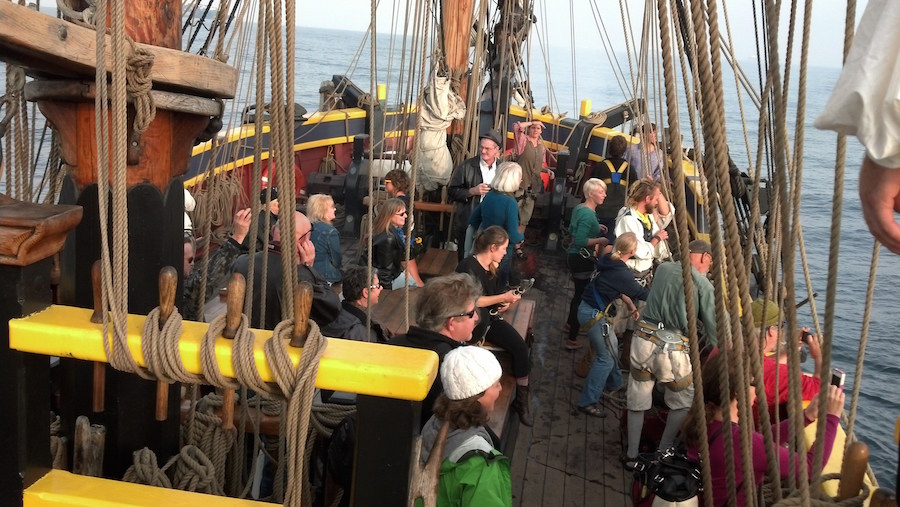
Get ready to put fingers in your ears (Courtesy of John Schneider)
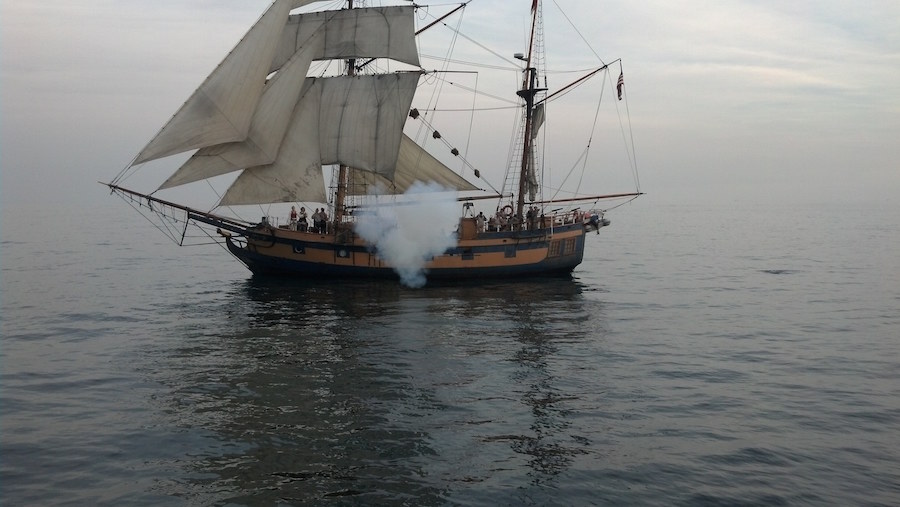
Look out - Incoming (Courtesy of John Schneider)

Oh no! We are heading home
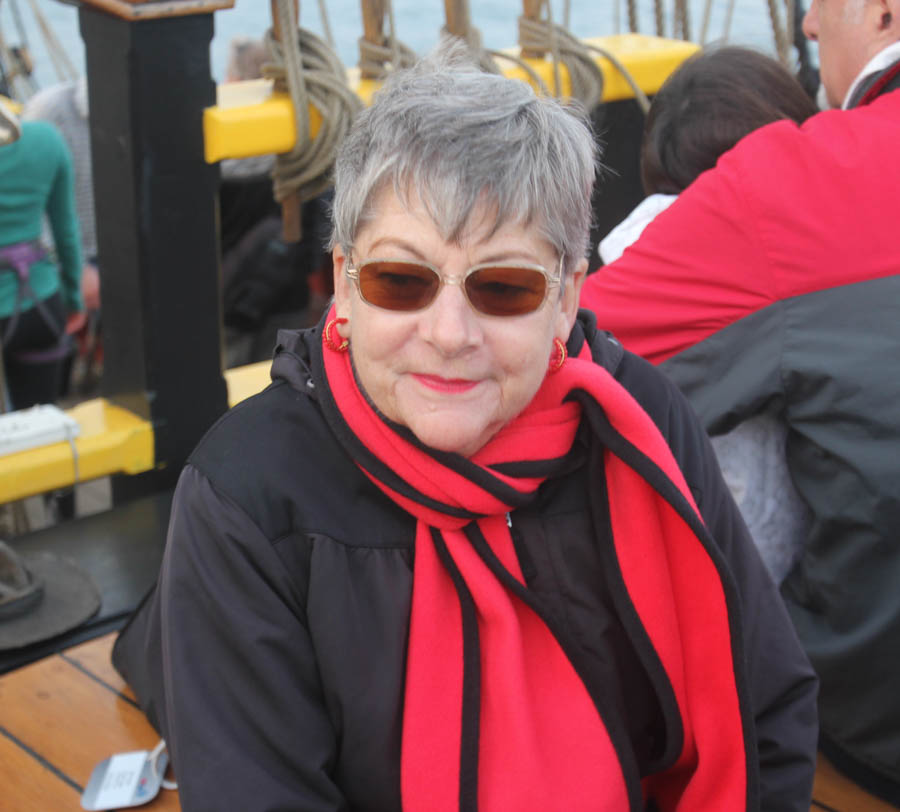
More layers have been added

Hanging on for dear life

The sky was magnificent

The USS Iowa
Did You Know? - USS Iowa (BB-61) was the lead ship of her class of battleship and the fourth in the United States Navy to be named in honor of the 29th state. Owing to the cancellation of the Montana-class battleships, Iowa is the last lead ship of any class of United States battleships and was the only ship of her class to have served in the Atlantic Ocean during World War II.
During World War II, she carried President Franklin D. Roosevelt across the Atlantic to Mers El Kébir, Algeria, en route to a crucial 1943 meeting in Tehran with British Prime Minister Winston Churchill and Soviet leader Josef Stalin. She has a bathtub—an amenity installed for Roosevelt, along with an elevator to shuttle him between decks.
When transferred to the Pacific Fleet in 1944, Iowa shelled beachheads at Kwajalein and Eniwetok in advance of Allied amphibious landings and screened aircraft carriers operating in the Marshall Islands.
She also served as the Third Fleet flagship, flying Adm. William F. Halsey's flag at the Japanese surrender in Tokyo Bay. During the Korean War, Iowa was involved in raids on the North Korean coast, after which she was decommissioned into the United States Navy reserve fleets, better known as the "mothball fleet." She was reactivated in 1984 as part of the 600-ship Navy plan and operated in both the Atlantic and Pacific Fleets to counter the recently expanded Soviet Navy.
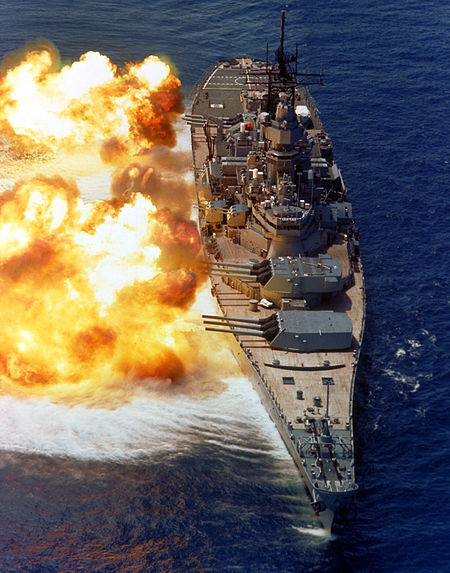
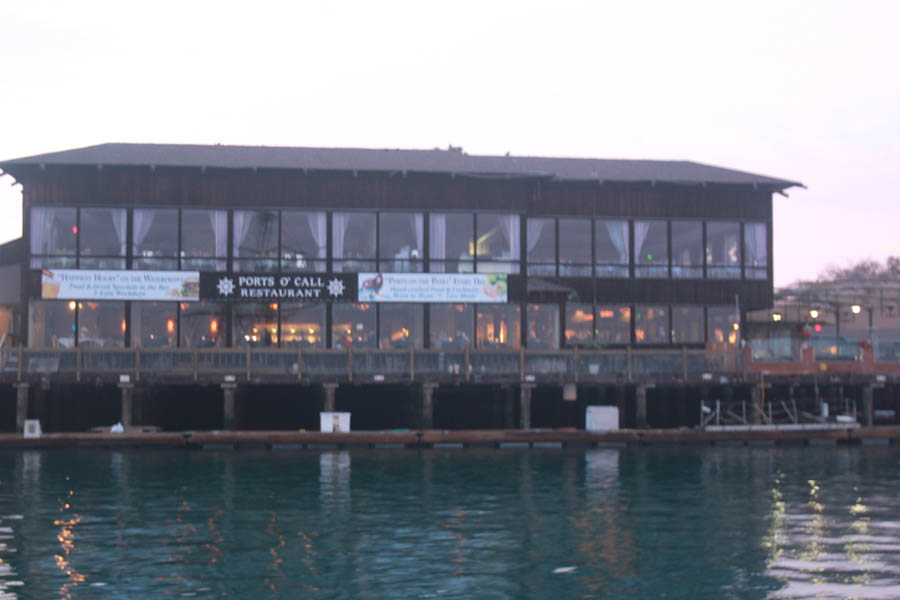
Back to the Ports O' Call
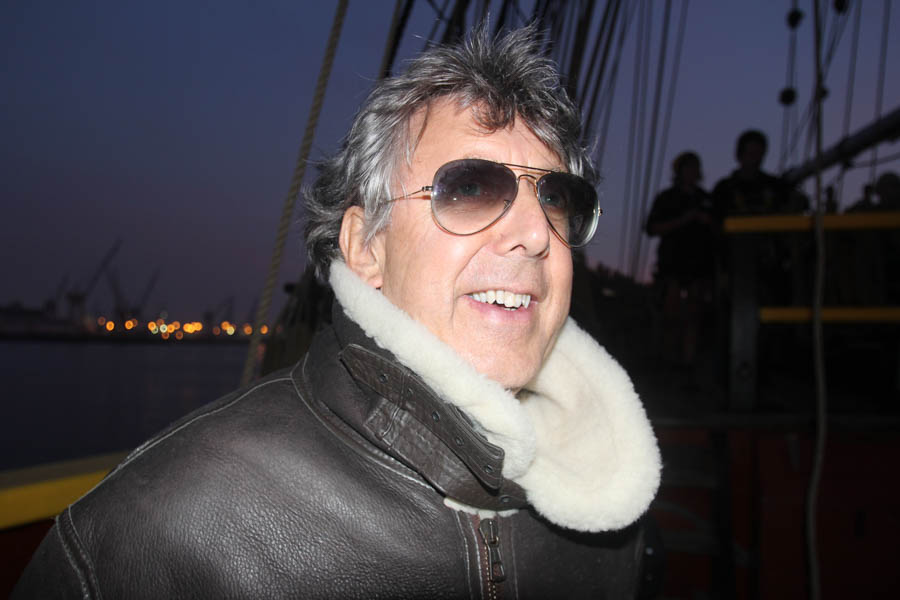
We made it!

Someone found the fire... The rest of us found the bar!

The Norwegian Cruise Lines ship departed


